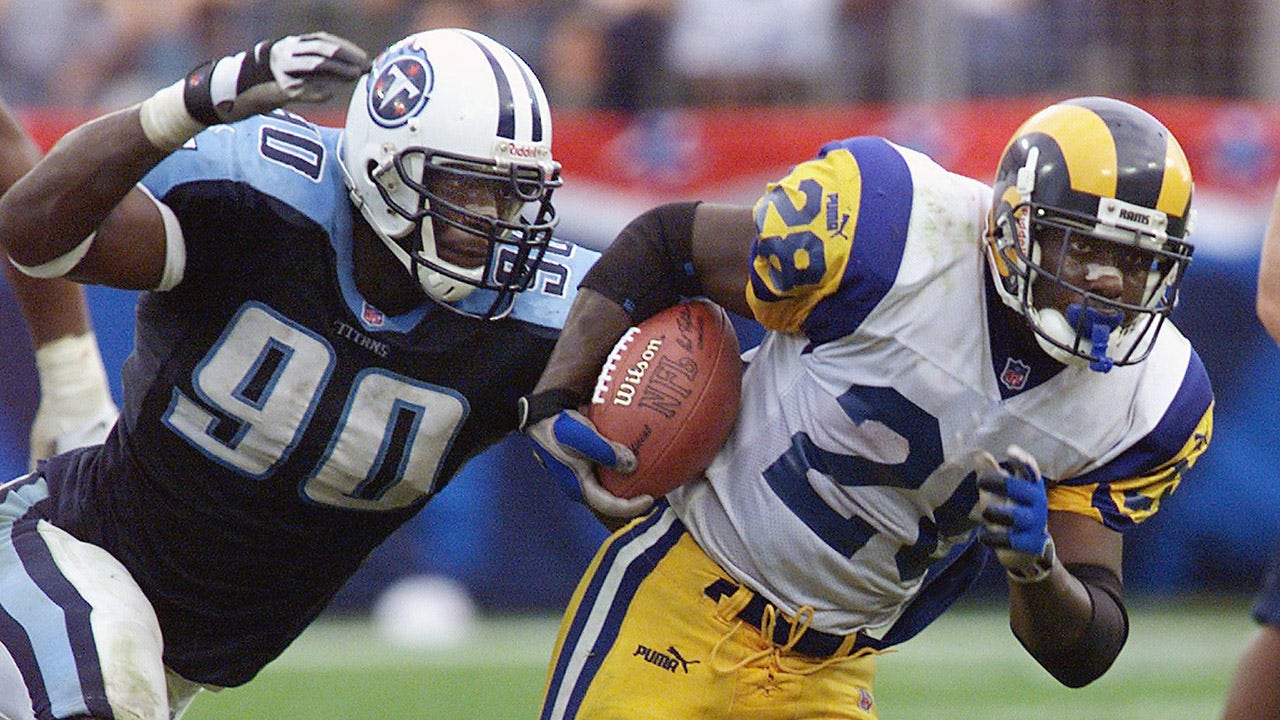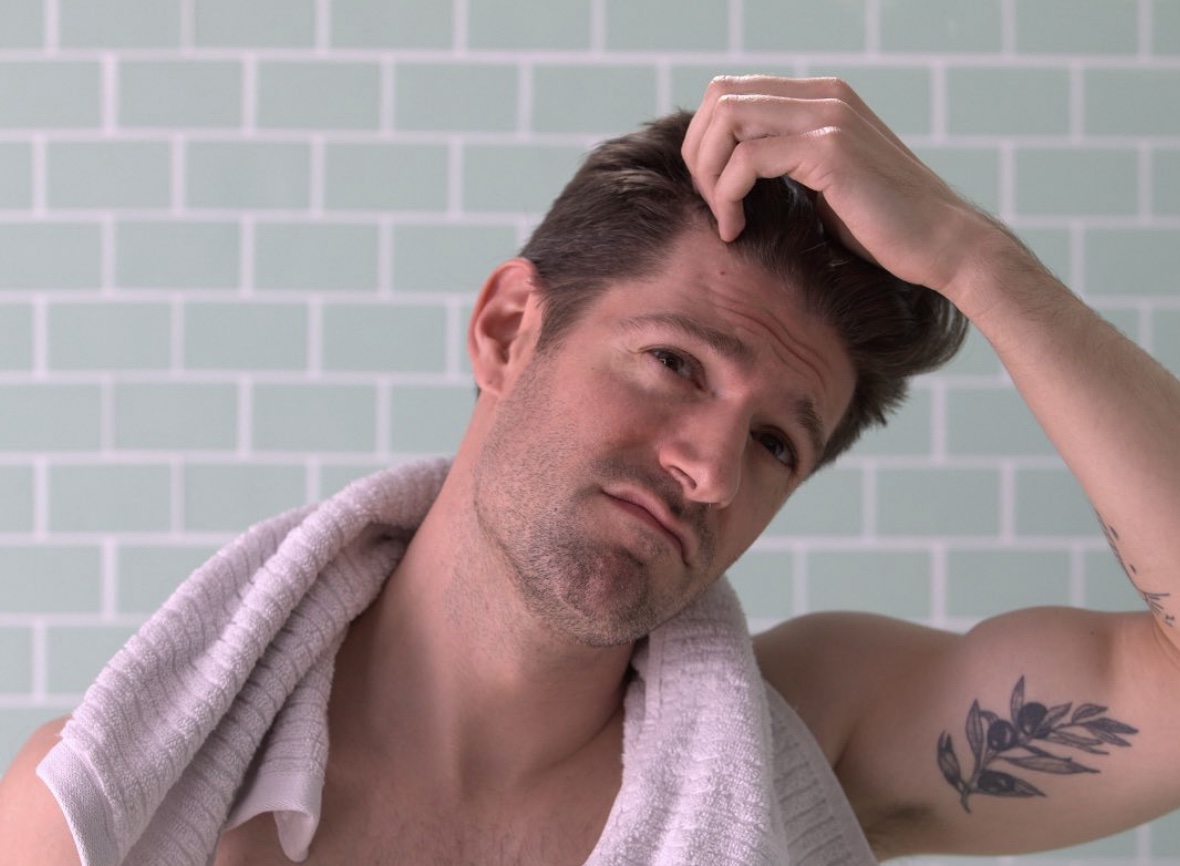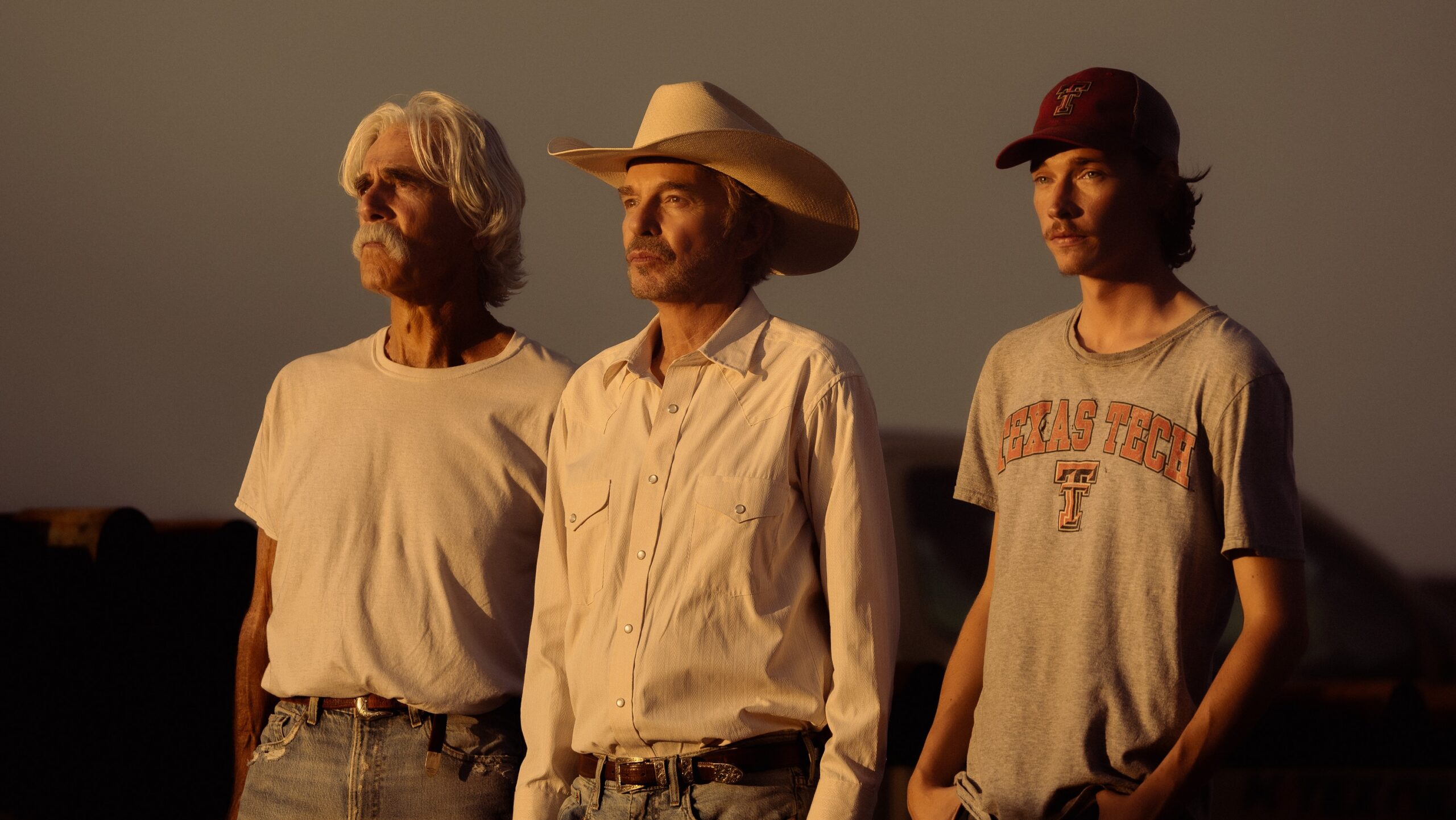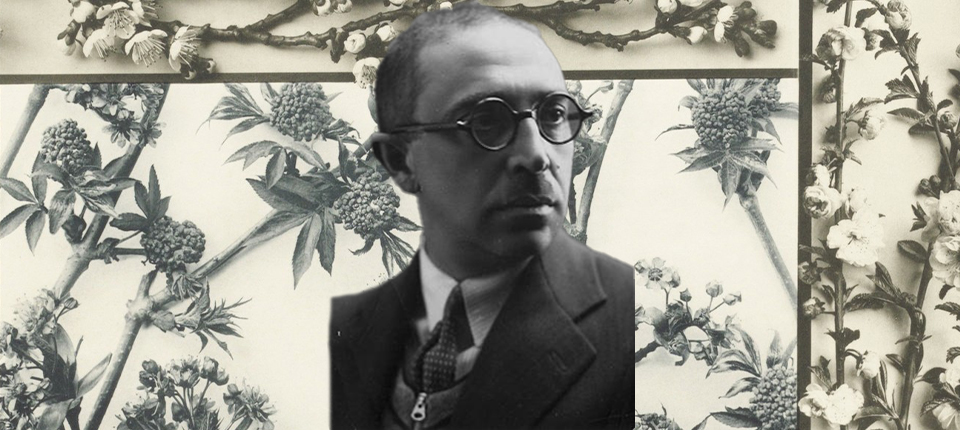At a cinema in London’s central Leicester Square, an area home to frequent star-studded premieres, extra screens have been hastily added to the opening week’s schedule to cope with demand. A few hours’ drive away in the city of Bristol, a former Imax screen — the biggest in the region — has been booked, as has a red carpet and a troupe of Irish dancers.
The movie getting this extra special treatment ahead of its Sept. 2 release isn’t the latest Marvel outing. Nor is it the next prestige drama from a buzzy director starring an ensemble of A-listers.
It’s far from it — a four-year-old cult film from a first-time filmmaker better known for throwing his oiled-up torso across stages around the world. And it’s a film whose cult status has been attained, rather uniquely, without anybody having seen it.
Blackbird, the feature directorial debut of famed, fast-footed Lord of the Dance and Riverdance legend Michael Flatley, is “a spy thriller of the classic genre,” according to the 64-year-old Bostonian. It’s also a movie he wrote, produced, directed, self-financed and stars in (as the lead, no less) and a film that had something of a contentious start when it first came to public attention in 2018, after which it promptly — and mysteriously — vanished from sight.
And for one cinema programmer, that’s exactly what gives Blackbird its cult credentials.
“You can find pretty much anything you want from the history of cinema these days,” says Paul Vickery, head of programming at London’s Prince Charles Cinema, a two-screen site famed for its regular movie marathons (including a recurring Nicolas Cage triple-feature) and monthly showings of Tommy Wiseau’s so-bad-it-is-good masterpiece The Room. “But when there’s a film that has been seen by very few and discussed by many, a film that people are aware of but has been taken away, then it becomes cult.”
Of course, it’s not strictly true to say that nobody has seen Blackbird.
The film — in which Flatley plays Victor Blackley, “a troubled secret agent” whose life of retirement running a “luxurious nightclub in the Caribbean” is turned upside down when “an old flame arrives and reignites love in his life, but she brings danger with her” — had a glitzy world premiere at London’s Raindance Film Festival in August 2018.
However, for reasons that can only be speculated upon, the screening shut out press (invites were rescinded on the day) and produced zero reviews or reactions. The decision may have been linked to a spot of online backlash over two early posters featuring Blackbird’s older, sharp-suited and very much credited male stars (including Eric Roberts and Patrick Bergin) alongside an assortment of younger, bikini-clad and uncredited women (notably Nicole Evans). But attempts to find out were met with silence.
It then went dark, even on Flatley’s social media pages, previously filled with excitable updates about the film and sun-soaked behind-the-scenes snaps. Had Blackbird been buried in one of Flatley’s gardens? Had he made the film purely to satisfy his own cravings to get in front of a camera and play James Bond?
With film fans’ curiosity piqued, a following slowly began to emerge.
Nothing was then heard about Blackbird for almost three years until it made a peculiar appearance as the opening night film of 2021’s inaugural Monaco Streaming Festival (a screening, despite the festival’s name, not actually streamed), where Flatley won the best actor award. Then silence again.
But in early July this summer it was announced, very much out of the blue, that the film — which many of its watchers had assumed would never see the light of day, at least publicly — was set to be coming out in cinemas in Ireland and that the U.K. Wildcard Distribution, a Dublin-based banner best known for releasing several noted indie titles across Ireland, was behind the release. Aided by its first trailer — which immediately attracted attention thanks to a large dollop of melodrama, plus a healthy assortment of exotic locations, attractive women, blood-splattered white tuxedos and Flatley wearing a jaunty fedora — the news was met with wild celebration (and a touch of comedy derision) on social media. For the many out there who hadn’t been aware of the film before, the immediate response was mostly one of dumbfounded shock. As one tweeter succinctly noted: “holy fuckballs”.
Vickery claims he had confirmed Blackbird for the Prince Charles Cinema, where he says the film perfectly falls into the world of “curio” titles it specializes in, within 24 hours of the U.K. release being announced (via THR).
“I booked this solely on the understanding that I know that people, myself included, are intrigued by this movie because of its origin and its journey,” he says. “There’s just going to be a pool of people out there that are desperate to see what the hell it’s about. It’s going to be an experience.”
British cinema chain Showcase is going a step further and giving Blackbird the full schedule treatment across all its 17 U.K. sites. “We’re very happy to embrace it,” says its director of film buying Richard Leonard. “People are waiting for something that fundamentally is going to be fun and something that you can talk about ahead of time. The fact that it’s already getting cult status shows there’s a massive buzz. It’s such an extraordinary transformation, isn’t it? Has anyone ever had the image of Michael Flatley as Russell Crowe?”
Because it’s not simply the unusual four-year journey from world premiere to release that has helped create Blackbird’s near-mythical status. There’s also the individual — a man who made a fortune from his frenzied toe-tapping and whose feet were famously once insured for $57.6 million — at the helm.
Leonard describes Flatley’s shift from super-hoover to super-spy as something not seen since “Liam Neeson first started chasing villains,” but others suggest it’s a much more dramatic leap.
“It’s kind of like if [British TV gardener] Alan Titchmarsh suddenly announced he’d made an action film,” says Timon Singh, founder of the Bristol Bad Film Club, one of the U.K.’s best-known movie clubs specializing in the celebration of enjoyably awful titles.
“It’s got nothing to do with Michael Flatley himself, or the fact it’s a man of his age, fitness level and expertise, it’s just such a wild swing from what he’s done before that has got people fascinated.”

Courtesy of Dancelord Pictures
There’s still the question of where Blackbird will eventually land when it comes to film categorization.
Many of its early followers were, such as Singh, fans of cinema that falls into the band of being so bad that it crosses the threshold into something to be relished. Early clues certainly pointed to a few tell-tale signs, most notably Flatley’s multihyphenated credits (much like Wiseau’s). And, like The Room, once described as the “Citizen Kane of bad movies,” it’s also a film that appears to have been fueled by passion and self-belief and made without a shred of irony, unlike several B-list features often put together by filmmakers with tongue firmly in cheek hoping to cash in on cult infamy.
Several online have noted that the trailer for Blackbird heavily reminded them of the episode in The Office where Steve Carell’s Michael Scott unveils his own self-made spy film Threat Level Midnight (starring himself as Agent Michael Scarn).
For Rob Hill, author of The Bad Movie Bible and an expert in so-called Egosploitation films, the vital element for a bad movie to transcend into the cult bad movie realm is that it needs to be “completely delusional.” Essentially, it needs to have given the filmmaker the opportunity to “show how they see themselves,” he says. So in The Room, Wiseau’s character Johnny isn’t necessarily the coolest guy or the best fighter. He’s the most popular guy, beloved by everyone around him. “That whole movie is just people telling Tommy why they think he’s brilliant,” says Hill.
In Blackbird, it should be noted, Flatley plays Blackley, a suave, well-dressed and highly capable spy with an attractive (and younger) blonde woman seemingly vying for his affections.
But vanity project or not (Flatley assured The Hollywood Reporter back in 2018 that it definitely wasn’t), what is clear from the trailer is that Blackbird isn’t some cheaply thrown together affair.
For all the overblown drama (a clip of an open-shirted and red-faced Flatley screaming “I’ll never get past this!” has already become a much-tweeted favorite), it’s a very slick-looking production that a lot of time, effort and resources have gone into. It also features settings that include elements of Flatley’s own multimillion-dollar property portfolio (much was shot at his Castlehyde mansion in Ireland’s County Cork, recently up for sale for 12.5 million euro, while his home in Barbados is also believed to have been used). And as for the music, when the release was first announced in July, Flatley excitedly revealed that none other than Sinead O’Connor had recorded the closing song.
“On paper, it sounds like a massive ego trip, but the trailer looks really well shot and clearly has some production value. And I don’t know what Flatley is like as an actor, but he doesn’t look bad,” notes Singh. “And the whole thing about him having done a Wiseau in that he’s written, produced, financed, directed and starred in it…. I think you can only say he’s pulled a Wiseau if it fails. If it succeeds, he’s pulled an Orson Welles.”
While “doing a Wiseau” may seem that last thing any aspiring filmmaker, not just Flatley, wants to be labeled with, The Room — as undoubtedly the best-known bad film in existence, thanks in part to James Franco’s 2017 comedic making-of biopic The Disaster Artist — is still packing theaters around the world. Vickery says the monthly screening at the Prince Charles Cinema frequently sells out, often with a new crowd each time rather than just returning obsessives, and Wiseau himself is booked to return in February to present a showing — and spur ticket sales even further — after several years away.
Whether Blackbird has the legs to enter the realm of a cult film that warrants repeat theatrical viewings is almost entirely dependent on whether the audience gets behind it and creates a momentum. The Room, of course, landed with a near-silent thud when it was first released in one cinemas in L.A. in 2003, only to be picked up by a small legion of film fanatics and eventually snowballing into a must-see cinematic experience around the world, and all before the age of social media.
“We’ll only know if Blackbird is a monthly screening for rep houses around the world in two or three years time,” says Vickery. “I hope so and everybody who I’ve spoken to who’s booking it or has their eye on it is hoping so. I’m not going to deride this movie — I’m really hoping that it’s got enough into it that I can engage with and enjoy it and take it for what it is. I want the audience to be on that same page with me, which always makes it more fun.”
Much may rest on whether there are any standout — and perhaps quotable — moments or running themes from the film that can help embed Blackbird into popular culture, much like the way fans throw plastic spoons during screenings of The Room or repeat lines such as “oh hai, Mark”. “He needs to have a catchphrase,” notes Vickery. “Or wear the same outfit throughout.” Flatley’s ever-present jaunty fedora in the trailer might well be something that audiences latch onto. Leonard says Showcase will be leaning heavily on the line “I’m not the man I used to be” from the trailer in its marketing push, emphasizing Flatley’s unlikely transformation.
And while Wiseau has made an entire living out of The Room and its prolonged ongoing afterlife, it’s not clear whether Flatley would want to or, given his dance-accrued fortune, even needs to.
THR understands that he’s going to be doing the U.K. media circuit to promote the film ahead of its release, but the idea of him touring cinemas in the years that follow is another matter entirely. That being said, while Blackbird’s budget hasn’t been revealed, as The Times reported earlier this year, the accounts for the Blackbird Film Productions — the film’s dedicated company owned by Flatley — showed debt of 3.5 million euros ($3.6 million) at the end of 2020, so there may be pressure from accountants for the film to make as much money as possible (a factor that could be behind its unexpected release).
Given the excitement, the worst possible outcome for Blackbird — and one that could immediately cancel out its cult status credentials — is that it’s just OK.
“If it’s spectacular or if it’s spectacularly bad, that’s fine either way,” says Singh. “But if it’s just by the books, and I sat there with 200 people and after 20 minutes I’m, like, ‘Oh god, this is really boring,’ that’s the worst thing I can see happening. But if it’s flashy and fun and stylish, and everyone’s enjoying it, even if it’s in a cheesy way or an ironic way or an earnest way, that’s great.”
But after four years of wait, a mysterious and speculation-fueled journey to screen — perhaps, most important — the mere idea of seeing Michael Flatley pulling a few 007 moves in a movie he wrote for himself and paid for, expectations are high.
As Singh notes: “I think the reason everyone has a such a morbid fascination and curiosity around Blackbird is simply because the Lord of the Dance has made a spy film.”



























































